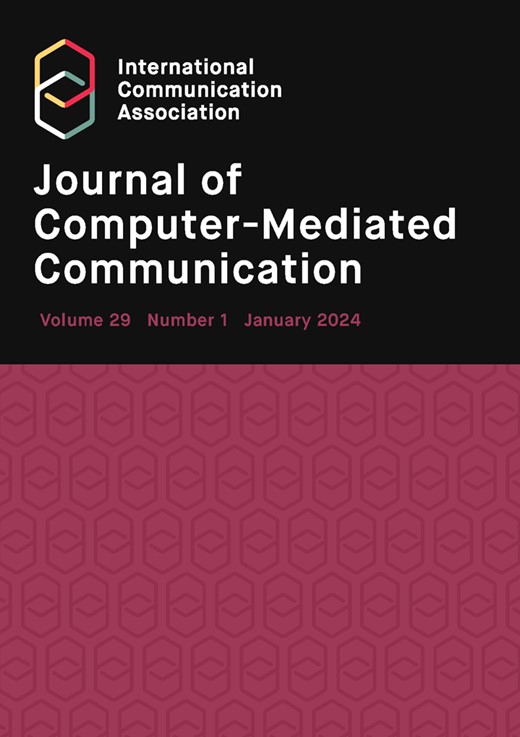不确定性下的语音制作:求职者如何体验和与人工智能面试官沟通?
IF 5.4
1区 文学
Q1 COMMUNICATION
引用次数: 0
摘要
人机沟通(HMC)的理论和研究表明,当机器取代人类成为沟通伙伴时,改变了沟通的过程和结果。随着人工智能(AI)越来越多地用于面试和评估求职者,雇主应该考虑人工智能在基于AI的面试中对求职者心理和表现的影响。这项研究考察了人工智能评估求职者的经验和语言流利程度。在一项三条件的被试实验中(N = 134),大学生们在他们的印象中进行了一次在线模拟面试,他们的表现将由人类招聘人员、人工智能系统或具有类似人类界面的人工智能系统评估。在人工智能评估条件下,参与者报告了更高的不确定性和更低的社会存在,并且具有更高的发音率。通过降低社交存在,人工智能评估提高了说话率,减少了沉默停顿。研究结果为HMC理论和自动化招聘和专业培训的实践提供了信息。本文章由计算机程序翻译,如有差异,请以英文原文为准。
Speech production under uncertainty: how do job applicants experience and communicate with an AI interviewer?
Theories and research in human–machine communication (HMC) suggest that machines, when replacing humans as communication partners, change the processes and outcomes of communication. With artificial intelligence (AI) increasingly used to interview and evaluate job applicants, employers should consider the effects of AI on applicants’ psychology and performance during AI-based interviews. This study examined job applicants’ experience and speech fluency when evaluated by AI. In a three-condition between-subjects experiment (N = 134), college students had an online mock job interview under the impression that their performance would be evaluated by a human recruiter, an AI system, or an AI system with a humanlike interface. Participants reported higher uncertainty and lower social presence and had a higher articulation rate in the AI-evaluation condition than in the human-evaluation condition. Through lowering social presence, AI evaluation increased speech rate and reduced silent pauses. Findings inform theories of HMC and practices of automated recruitment and professional training.
求助全文
通过发布文献求助,成功后即可免费获取论文全文。
去求助
来源期刊
CiteScore
9.60
自引率
2.80%
发文量
26
期刊介绍:
The Journal of Computer-Mediated Communication (JCMC) has been a longstanding contributor to the field of computer-mediated communication research. Since its inception in 1995, it has been a pioneer in web-based, peer-reviewed scholarly publications. JCMC encourages interdisciplinary research, welcoming contributions from various disciplines, such as communication, business, education, political science, sociology, psychology, media studies, and information science. The journal's commitment to open access and high-quality standards has solidified its status as a reputable source for scholars exploring the dynamics of communication in the digital age.

 求助内容:
求助内容: 应助结果提醒方式:
应助结果提醒方式:


